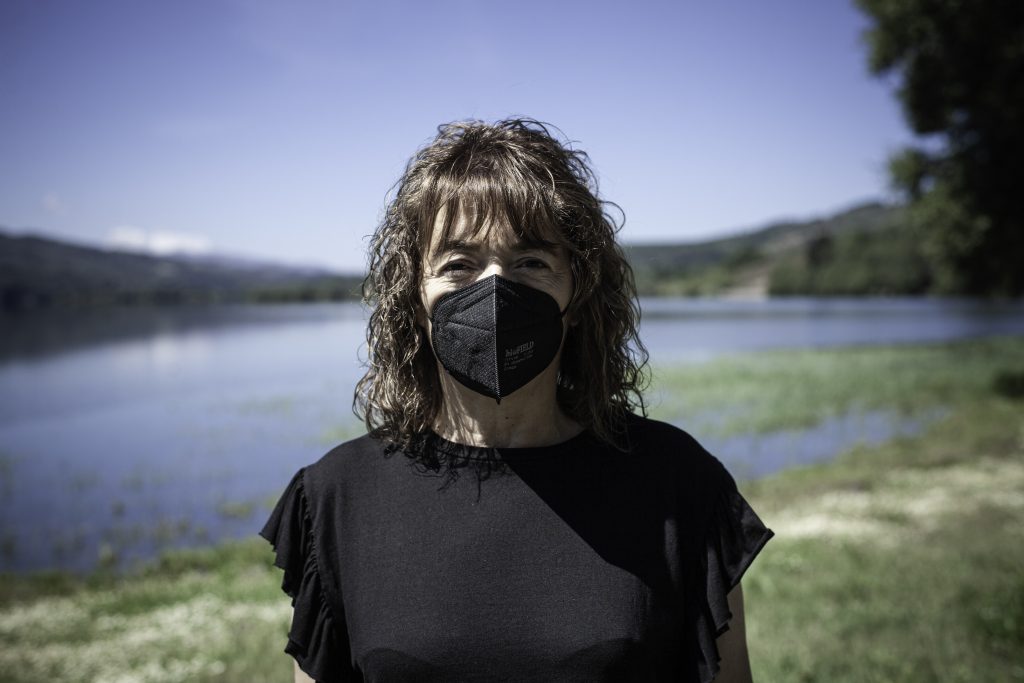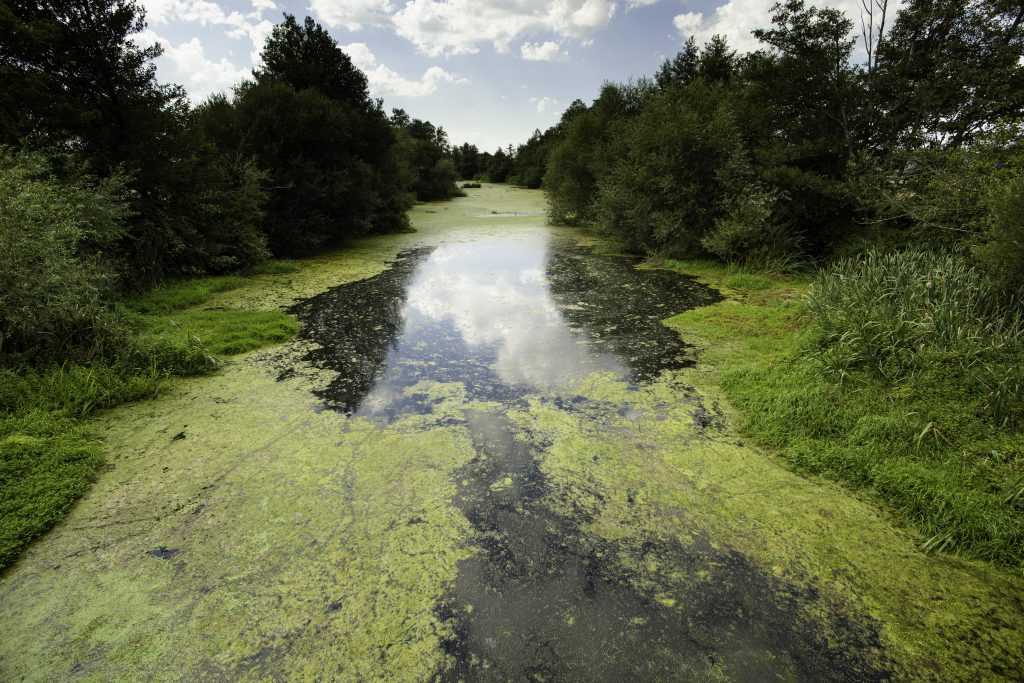A rural community in Galicia, Spain, has filed a pioneering lawsuit against the regional government (Xunta de Galicia) and other public bodies over inaction to tackle pollution caused by industrial livestock production.
Our Spanish member group Amigas de la Tierra is one of nine plaintiffs, including individuals and other organisations like the Federation of Consumers and Users (CECU) and ClientEarth, taking the Galician authorities to court for allowing intensive pig and poultry producers to pollute the waters of As Conchas reservoir for decades, making life in the community ‘unviable’
The court case sets a precedent in Europe: for the first time, a court will evaluate the impact of industrial livestock production on water resources from a fundamental rights perspective.
The life unviable
In the area of A Limia, Galicia, hundreds of intensive livestock facilities operate thanks to lax authorisations granted by the regional government, despite national and European obligations to guarantee the protection of citizens’ health and welfare.
This uncontrolled development has seriously deteriorated the community’s living conditions: people are exposed to serious health risks and afraid to drink the water from the wells, while the stench does not even allow people to open their windows. In some cases, municipal water supplies are also contaminated.
Pablo Álvarez Veloso, president of the local residents’ association and plaintiff in the case, explains:
‘Like many of us who live in As Conchas, I am afraid to drink water from our wells because of the contamination.We are so worried about the situation that even the idea of walking near the reservoir is unthinkable.’
After repeated requests and unaddressed health and environmental hazards, the As Conchas residents have turned to the courts to seek justice.

A threat to public health and the environment
Scientific studies have revealed alarming levels of nitrates in the reservoir, which is a risk factor for several types of cancer, including breast, ovarian, stomach, pancreatic and bladder cancer, thyroid cancer. It has also been associated with non-Hodgkin’s lymphoma (NHL) and methaemoglobinaemia, a blood-borne disease that can be fatal.
In addition to nitrates, antibiotic-resistant bacteria have been found in the reservoir, known to cause diseases that are difficult (or impossible in some cases) to treat. The World Health Organisation has warned that these types of antibiotic-resistant superbugs are among the top ten threats to humanity.
The impact extends beyond water contamination. The overwhelming stench coming from these intensive animal factories is combined with fine particles in the air that can cause respiratory problems and asthma, especially for the most vulnerable, children and the elderly.
Mercedes Álvarez de León, plaintiff in the case and local businesswoman, describes her struggle:
‘During the hottest months of the year, we are even afraid to open the windows to cool the house, because that’s when the stench from the reservoir becomes most unbearable.
During the summer, the headaches I have had since 2012 get worse and become more frequent .I have been to the doctor again and again to see what the cause is, but they haven’t found an explanation. I think it’s because of this pollution’
Government inaction and legal obligations
Despite clear and well-document evidence of the risks for public health , Galician authorities continue to grant permits for new livestock facilities, violating Spain’s Constitution, European environmental laws and the European Convention on Human Rights.
Nieves Noval, a lawyer at ClientEarth, one of the NGOs supporting the case, highlights the legal failure:
‘Both the Spanish Constitution and European law are unequivocal in their mandate:the authorities have a legal obligation to protect citizens.
We believe that the authorities have failed the people living in the region of A Limia and As Conchas. Despite being fully aware of the real impact that industrial livestock farming is having on the area,they continue to authorise these farms in a permissive and repeated manner.’
A call for change
Blanca Ruibal, a representative of Amigas de la Tierra, the organisation supporting the case, urges a shift towards farming practices that are fair to farmers, caring of people and nature:
‘This model of livestock farming is harmful to people and the environment, and the authorities have a responsibility to protect the fundamental rights of the people and the environment.
To this end, it is urgently need to establish a plan to reduce industrial livestock farming and to focus on agro-ecologicalextensive livestock production models that respect the limits of ecosystems and contribute to slowing down depopulation and keeping the rural world alive.
‘We hope that a precedent will be set and that more people can join in this type of lawsuit to demand that the fundamental rights of the communities are respected once and for all.’









